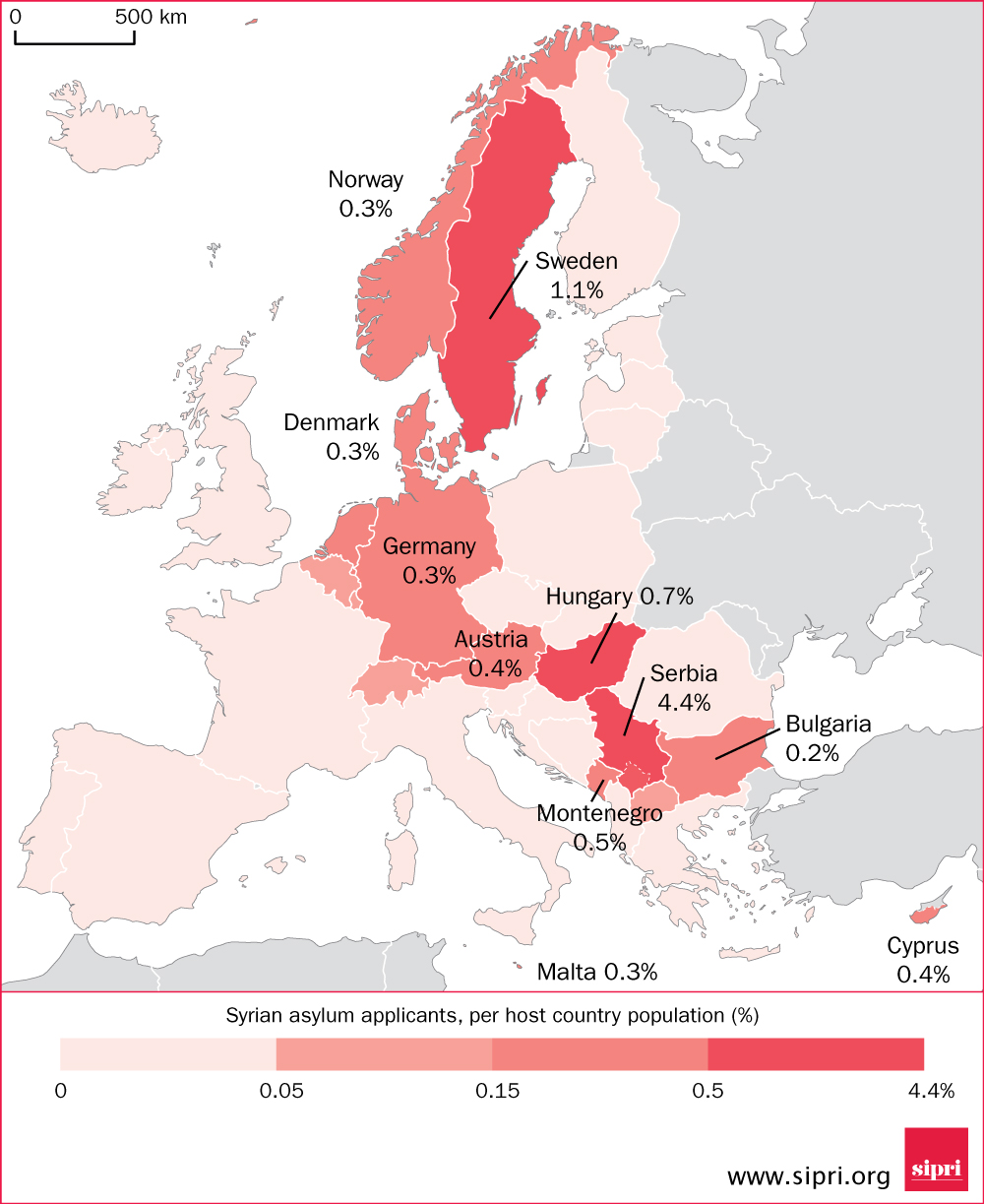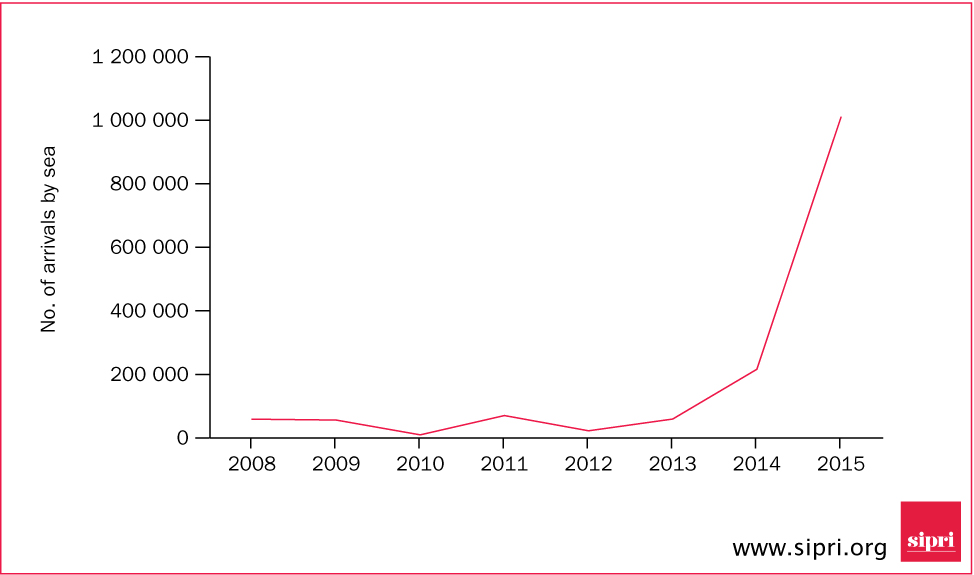11. Fragility and resilience in the European Union: an emerging discussion
Security was probably a more important issue for the European Union (EU) in 2015 than it has been at any time in the past
20 years. Thinking about security has become more challenging given a fast-changing context that includes the global mobility of people, the free movement of capital in a fragmented and inadequately regulated financial system, the limited capacity of states to manage change and the evolution of state sovereignty, the rapid advance of technology and the changing demographic and spatial patterns created by globalization, urbanization and digitization.
Spillover from war and extremism
In 2015, conflicts in Libya, Syria/Iraq and Ukraine required an EU response, including measures to address spillover effects, most notably the large-scale displacement of people and an increased threat of terrorism. Cities in the EU experienced mass impact terrorist attacks carried out by religiously inspired individuals and groups. The November 2015 attack on Paris was carried out by a large group of attackers, some with military training and experience from conflict zones, with significant logistic support—posing a different kind of problem for the EU, which has mainly framed terrorism as a matter of law enforcement.
EU citizens have high expectations and many have never known anything other than a peaceful, prosperous and stable environment. They are accustomed to being able to move freely, without undue concern about being the victim of violent attack or being exposed to a high risk of crime. They also expect to be protected against the impact of unexpected and disruptive events.
However, roughly two-thirds of respondents to an April 2015 EU-wide survey believed that the EU will experience increased levels of terrorism and organized crime in the future, and ascribed this increase to a growth in extremist ideologies, the spillover effects of war and political instability outside the EU, as well as persistent poverty and social exclusion. In addition, roughly 70 per cent of respondents believed that climate change and pollution would exacerbate security threats.
A new EU internal security strategy
In 2015 the EU adopted a new internal security strategy with a focus on terrorism and organized crime. A security dimension was also recognized in other public policy frameworks. Energy security was included in a new framework to create an energy union, which is part of a forward-looking policy on climate change and its implications. The re-evaluation of relations with the EU neighbourhood continued.
The EU member states are the primary actors in responding to security threats, but the EU is not just a platform for organizing interstate dialogue and promoting voluntary information exchange. Member states expect and insist that their common instruments will be applied directly to help address complex and interrelated challenges. Citizens expect the EU to play its part in ensuring that their high expectations are met, and are quick to criticize it when the contribution does not seem effective.
The EU’s working practices—such as planning and budget cycles that stretch over 5–7 years—equip it to develop a certain persistence and continuity of action that, while not well suited to crisis response, can bring about important systemic change over time. Moreover, while the balance that has to be struck in a union of 28 sovereign states makes it difficult to agree on a common approach, the continuous dialogue that leads to an agreement promotes continuity once a decision is reached.

Migration and refugees
While migration is the exclusive legal competence of the member states, national decisions about migration have consequences across the EU, including security implications. In 2015, the member states tasked the European Commission with developing a comprehensive Agenda on Migration that might lead to a more integrated approach, depending on their reaction to what is proposed.
In contrast to migration, the EU does have a common framework for addressing refugees from armed conflict and oppression in their home countries. However, while asylum seeking is a familiar problem, existing procedures were not designed to cope with the unprecedented scale of recent arrivals. The sudden arrival of very large numbers of individuals seeking asylum required an emergency response.
